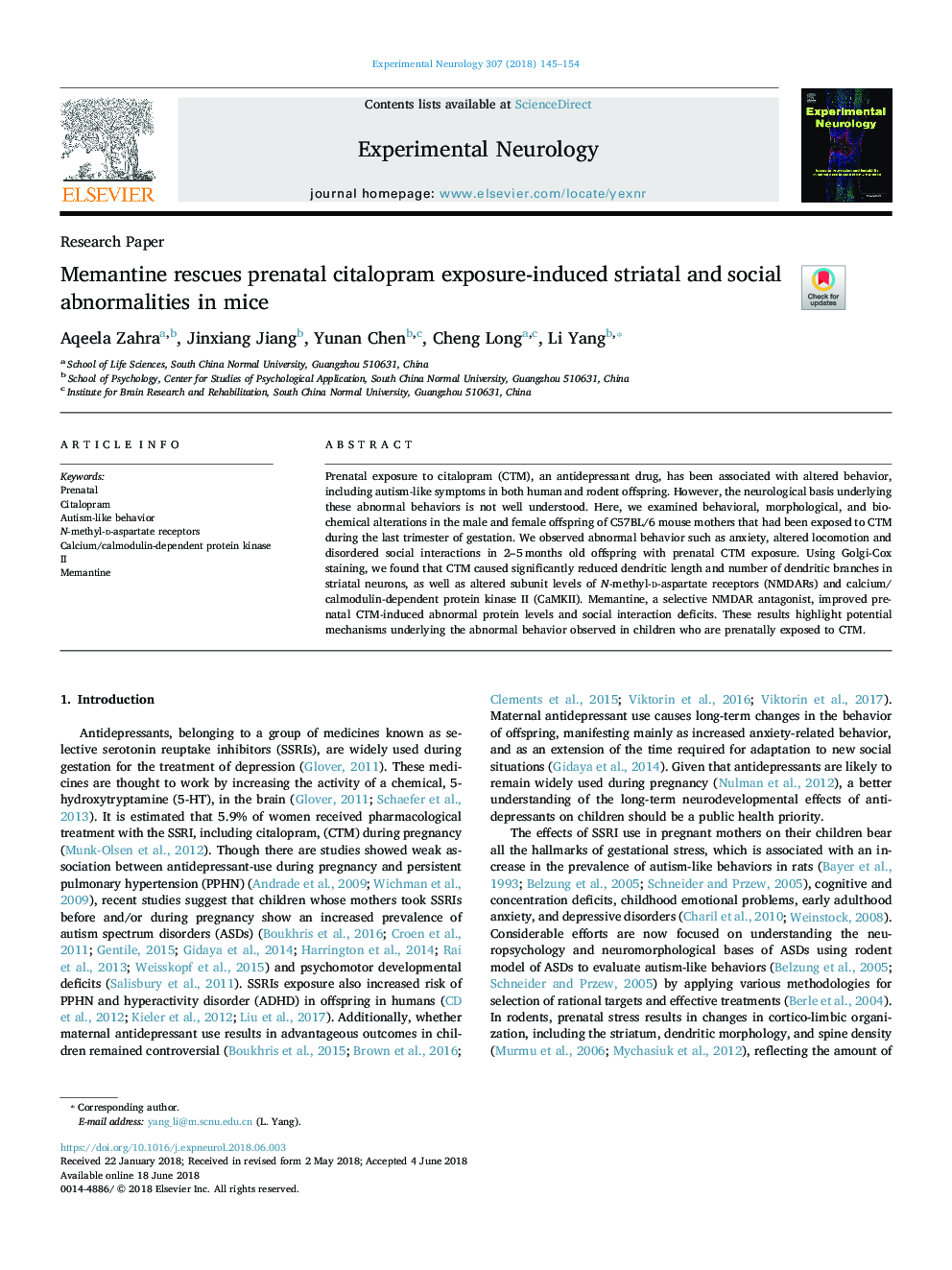| Article ID | Journal | Published Year | Pages | File Type |
|---|---|---|---|---|
| 8684568 | Experimental Neurology | 2018 | 10 Pages |
Abstract
Prenatal exposure to citalopram (CTM), an antidepressant drug, has been associated with altered behavior, including autism-like symptoms in both human and rodent offspring. However, the neurological basis underlying these abnormal behaviors is not well understood. Here, we examined behavioral, morphological, and biochemical alterations in the male and female offspring of C57BL/6 mouse mothers that had been exposed to CTM during the last trimester of gestation. We observed abnormal behavior such as anxiety, altered locomotion and disordered social interactions in 2-5â¯months old offspring with prenatal CTM exposure. Using Golgi-Cox staining, we found that CTM caused significantly reduced dendritic length and number of dendritic branches in striatal neurons, as well as altered subunit levels of N-methyl-d-aspartate receptors (NMDARs) and calcium/calmodulin-dependent protein kinase II (CaMKII). Memantine, a selective NMDAR antagonist, improved prenatal CTM-induced abnormal protein levels and social interaction deficits. These results highlight potential mechanisms underlying the abnormal behavior observed in children who are prenatally exposed to CTM.
Keywords
Related Topics
Life Sciences
Neuroscience
Neurology
Authors
Aqeela Zahra, Jinxiang Jiang, Yunan Chen, Cheng Long, Li Yang,
